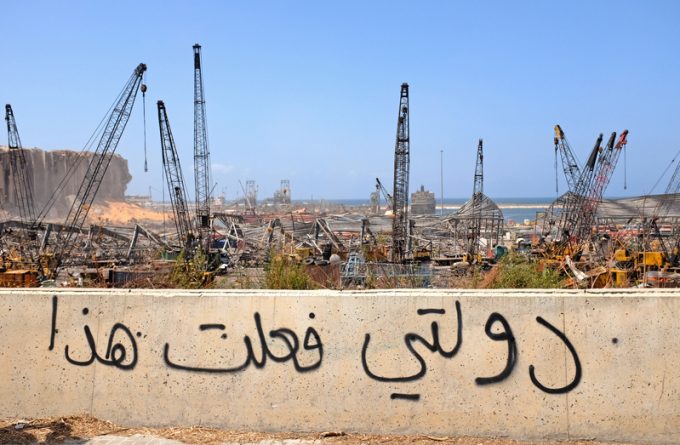Rebuilding the port of Beirut: a competition for geopolitical influence
The race to rebuild Beirut port is on, following the devastating explosion at Lebanon’s key ...

The dark side of the shipping industry – well, one of them – has come to the fore following the tragic explosion in Beirut and the ship which ran aground in Mauritius, leaking heavy oil and toxic fuel onto a coral reef. An article in Forbes says it’s time to review shipping regulations, in particular vessel registration.
The ship is Japanese-owned but Panama-flagged, and Japan has not offered to help with the clearing up, despite the vessel being 200 miles off ...
Ecommerce air traffic to US set to grind to a halt as de minimis exemption ends
Maersk u-turn as port congestion increases across Northern Europe
Apple logistics chief Gal Dayan quits to join forwarding group
Widespread blanked sailings stave off major collapse of transpacific rates
Transpac rates hold firm as capacity is diverted to Asia-Europe lanes
Airlines slash freighter capacity post-de minimis, but 'the worst is yet to come'
Houthis tell Trump they will end attacks on Red Sea shipping
MSC revamps east-west network as alliance strategies on blanking vary
Maersk Air Cargo sees volumes fall as it aims for 'margin in favour of revenue'
India-Pakistan 'tit-for-tat' cargo ban sparks sudden supply chain shocks
Containership charter market feels the ripples from trade tensions
Gemini Cooperation carriers steam ahead of rivals in reliability stakes
Changing shipment origin won't wash: US CBP turns away whole truckloads
Expeditors reports healthy growth in a 'frenzied landscape of tariffs'
Tariff on imported products for drugs would be hard for US pharma to swallow
Atlas Air stays bullish on US change: 'we're flexible, we can fly to other markets'


Comment on this article